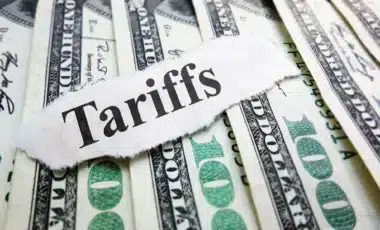The United States has granted a temporary one-month exemption from its new 25% tariffs on automakers operating in Canada and Mexico, a move expected to bring short-term relief to Detroit’s largest car manufacturers.
While this exemption has provided a brief pause in escalating trade tensions, it does not signify a shift in President Donald Trump’s broader trade policy.
The tariffs, which officially took effect on Tuesday, are part of a wider effort to exert economic pressure on Canada and Mexico, particularly in relation to fentanyl smuggling, according to Reuters.
Automakers See Temporary Relief but Uncertainty Remains
The White House’s one-month tariff exemption has come as a relief for General Motors, Ford, and Stellantis, all of which manufacture vehicles across North America under an integrated supply chain model.
The measure allows vehicles that adhere to the United States-Mexico-Canada Agreement (USMCA) content rules—requiring 75% of components to be sourced from North America—to avoid punitive tariffs for the time being.
Auto manufacturers, however, remain cautious. The tariffs are expected to add up to $7,000 to the price of vehicles produced in Canada or Mexico, creating financial strain for both companies and consumers.
Matt Blunt, president of the American Automotive Policy Council, welcomed the exemption but stressed that long-term certainty is critical for the industry.
Economic Impact and Stock Market Response
The temporary exemption has had an immediate effect on the stock market, with General Motors shares rising 7.2% and Ford climbing 5.8%. Despite this, broader market volatility persists as investors react to trade policy uncertainty. The benchmark S&P 500 index saw a 1.1% rebound, following days of sharp declines.
The tariff dispute also poses economic risks for Canada and Mexico. Canada’s economy, already under pressure, relies on the United States for 75% of its exports, and any prolonged tariff enforcement could trigger a recession, according to trade analysts.
Foreign Minister Mélanie Joly has warned that Canada may use oil and gas exports as leverage in future negotiations, raising the stakes for both sides.
Trump Ties Trade Policy to Fentanyl Crackdown
President Trump has justified the tariffs as part of a broader strategy to curb fentanyl smuggling into the United States. While acknowledging that Canada and Mexico are not the primary sources, he has insisted that both countries must take stronger action against trafficking.
Following a phone call with Canadian Prime Minister Justin Trudeau, Trump indicated that their conversation ended in a “somewhat” friendly manner, but remained firm in his position. Public data, however, suggests that only 0.2% of fentanyl seized in the United States originates from Canada, with the majority coming from the southern border.
Potential Implications for Other Industries
Beyond the automotive sector, other industries may soon be affected. Trump’s administration has signalled that energy imports from Canada, including crude oil and gasoline, could be subject to tariff reductions if they comply with USMCA rules of origin.
Discussions are also ongoing regarding potential exemptions for agricultural products, such as potash and fertilisers. Mexico, facing the prospect of declining exports to the United States, is actively seeking alternative markets.
Pemex, the state-run oil company, is in negotiations with buyers in Europe and Asia, including China, as it prepares for potential long-term trade disruptions.
The road ahead for North American trade
Despite the temporary relief for Detroit automakers, the uncertainty surrounding trade policies remains a concern for businesses across North America.
Automakers have expressed support for stronger US investment, but they stress that policy consistency is essential for long-term growth.
With Trump’s trade war escalating, Canada and Mexico are weighing their retaliatory options, while U.S. companies and consumers brace for potential price increases.









